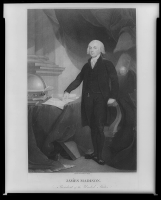Posted on December 30, 2006
Breyer's Lyin' Eyes
Justice sees only what he wants to
by
Daniel Clark
"The words in the Constitution are 'cruel and unusual.' Those are the words. It doesn't talk about the death penalty. It's embodying certain values." So says Supreme Court Justice Stephen Breyer, explaining why he thinks capital punishment might be unconstitutional.

That these remarks have not become a national scandal is a testament to the success that Breyer, his liberal colleagues and their predecessors have had in deconstructing the Constitution. Anymore, a direct contradiction of what that document actually says is simply taken to be an alternative school of constitutional theory.
In fact, the Constitution references the death penalty no fewer than three times: twice in the Fifth Amendment, and once in the Fourteenth. Each of these amendments specifically allows for the option of capital punishment when it says that no person shall be deprived of life without due process of law. Since the Eighth Amendment, which forbids "cruel and unusual punishments," was ratified concurrently with the Fifth, it cannot reasonably be taken to prohibit the deprivation of life when due process has been given.
Furthermore, the Fifth Amendment says that no person shall "be subject for the same offense to be twice put in jeopardy of life or limb." Clearly, this suggests that a person may be put in jeopardy of life or limb a single time for a single offense, but Breyer evidently doesn't see it that way. The way he reads the Constitution, his everyday life must be an endless stream of confusion. If one of the other justices were to bring donuts to work, and say that nobody shall take a second donut, Breyer would probably take that to mean he's not allowed to have a donut.
The Constitution, being a legal document, does not use superficial figures of speech. When it says "life or limb," that's just what it means. If a state decided to punish certain offenses by severing limbs, there is nothing in the Bill of Rights that would forbid it. The Supreme Court would still rule against it, of course, because of the way that Breyer and others misinterpret the phrase "cruel and unusual."
Anything worthy of being called a punishment can be credibly described as cruel. That's why the Eighth Amendment forbids punishments that are cruel and unusual, instead of merely cruel or unusual. If only one of those criteria needed to be met, we wouldn't even be allowed to incarcerate criminals, let alone execute them, or chop off their limbs.
What would be both cruel and unusual would be if a state's standard punishment for armed robbery was five years in prison, but one particular offender was instead sentenced to have his right hand lopped off. The Eighth Amendment would prohibit that because it would be an example of inequality under the law, not because our founding fathers were concerned that we'd be too hard on our criminals.

The relative nature of the phrase "cruel and unusual" echoes the two clauses that precede it, which say, "Excessive bail shall not be required, nor excessive fines imposed." These, too, are matters of equality under the law, for one can only determine what is "excessive" in comparison to the norm. Likewise, the "cruel and unusual" clause forbids punishment that is excessive. That may still require a degree of subjectivity, but not without an objective point of reference.
Justice Breyer says that when he interprets a law, he considers the purpose for which it was written, but his methods of divining that purpose are suspect to say the least. First, he takes one clause out of its constitutional context, and then he plucks the single word "cruel" out of that clause. By isolating that term, he can decide that "it's embodying certain values," without the definition of those values being influenced by any meddlesome context clues.
The benefit to this method of interpretation is that it makes everything a judgment call. Not coincidentally, it places almost unlimited powers in the hands of the judges. Hence, Breyer is free to base his opinions on precedent from Zimbabwe, evolving standards of decency, certain embodied values, consultations with Miss Cleo, or anything else he can think of.
Breyer's ideological rival, Justice Antonin Scalia, said in their recent debate that it's "easy as pie to figure out that the cruel and unusual punishment clause was not understood to prohibit the death penalty." Justice Breyer might have responded that it's even easier to just make things up as you go along.
-- Daniel Clark is a Staff Writer for the New Media Alliance. The New Media Alliance is a non-profit (501c3) national coalition of writers, journalists and grass-roots media outlets.
The Shinbone: The Frontier of the Free Press
Mailbag . Issue Index . Politimals